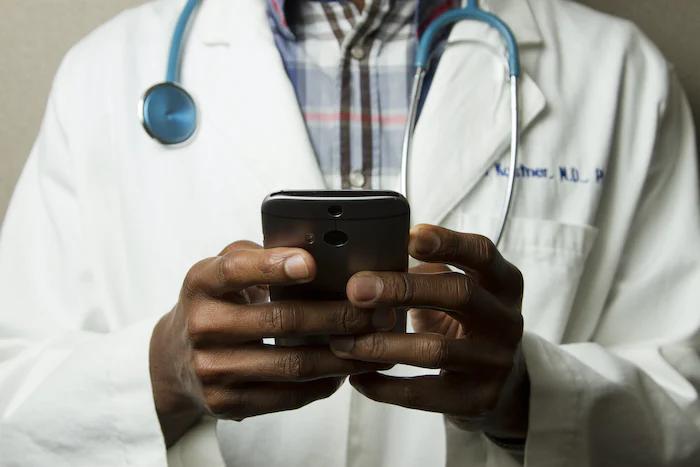Choosing a medical answering service can be daunting, especially for small medical practices that may not have experience in this area. However, a medical answering service can provide excellent patient care and ensure your practice runs smoothly.
This post will explore the factors you should consider when selecting a medical after-hours answering service, including cost, reliability, and customer service. We will also discuss the benefits of using a medical answering service and provide tips for finding the best service for your practice.
Factors to Consider While Choosing A Medical After Hours Answering Service
Cost of the Medical Answering Service
One of the first things you should consider when choosing a medical answering service is the cost. Medical answering services can vary significantly in price, and it is important to find a service that fits your budget. Some services charge a flat rate, while others charge based on the number of calls or the length of the call. It is important to carefully review the pricing structure of the answering service to ensure that you are getting the best value for your money.
In addition to the cost of the service itself, you should also consider any additional fees associated with the service. Some services charge additional fees for after-hours calls or calls requiring translation services. To budget the service accurately, it is important to be aware of these potential additional costs.
Reliability of the Medical Answering Service
Regarding medical after-hours answering service, reliability is of the utmost importance. Patients rely on these services to provide timely and accurate information, and any delays or errors can have serious consequences. Therefore, choosing a medical answering service with a strong track record of reliability is essential.
There are a few key things to look for when evaluating the reliability of a medical answering service. First, you should look for a service with a high uptime level. This means that the service can take calls consistently, with minimal downtime for maintenance or other issues. Additionally, it would be best if you looked for a service that has a fast response time. Patients expect to be connected with a live operator promptly, and a service with a slow response time may not meet their needs.
Quick Customer Service
Another important factor to consider when choosing a medical answering service is the level of customer service offered. You will likely be interacting with the service regularly, and choosing a responsive and helpful service is important.
There are a few key things to look for when evaluating the customer service of a medical answering service. First, you should look for an available service to assist you outside normal business hours. Medical practices often operate around the clock, and it is important to have a service available to assist you whenever you need it. Additionally, it would be best if you looked for a service that is responsive to your needs and concerns. This may include providing regular updates on calls, handling any issues that arise quickly, and being available to answer questions or provide additional support.
Benefits of Using a Medical After Hours Answering Service
There are several benefits to using a medical after-hours answering service for your practice. Here are a few key benefits to consider:
- Improved patient care: By using a medical answering service, you can ensure that your patients have access to the information they need, even when you are not available. This can help to improve patient satisfaction and build trust in your practice.
- Increased efficiency: A medical answering service can handle many tasks, including scheduling appointments, answering patient questions, and providing information about your practice. This can help to free up your time and allow you to focus on more important tasks, such as caring for your patients. They also have TTY or IP Relay service for hearing-impaired patients.
- Cost savings: Using a medical answering service can help you to save money in the long run. By outsourcing some of your non-medical tasks to a professional service, you can avoid the cost of hiring additional staff or training existing staff to handle these tasks.
- Improved after-hours coverage: A medical answering service can provide coverage outside your normal business hours, ensuring that your patients can reach you when needed. This can be especially useful for medical practices that do not have the resources to staff their after-hours call center.
Tips for Finding the Best Medical Answering Service
Now that you know what to look for when choosing a medical answering service, here are a few tips to help you find the best service for your practice:
- Research your options: Take some time to research the various medical answering services available. Look for reviews from other medical practices and consider the features and pricing of each service.
- Consider your specific needs: Different medical answering services may offer different features and services, so it is important to consider what you need. For example, if you have a large number of patients that speak a language other than English, you may want to look for a service that offers translation services.
- Test the service: Once you have narrowed down your options, consider testing the service to see how well it meets your needs. Some services may offer a trial period or allow you to try their service before committing to a contract. Ensure they are HIPAA-compliant.
Conclusion
In summary, choosing a medical answering service is an important decision for any medical practice. By considering factors like cost, reliability, and customer service, you can find a service that meets your needs and helps to improve patient care and practice efficiency. By taking the time to research your options and test the service, you can make an informed decision that will benefit your practice in the long run. If you want a medical after-hours answering service for your clinic, check our services
Frequently Asked Questions
What is a medical answering service?
A medical answering service is a professional service that handles phone calls and other communication for medical practices. This can include answering patient questions, scheduling appointments, and providing general information about the practice.
Why should I use a medical answering service?
Using a medical answering service can help to improve patient care, increase efficiency in your practice, and save money by outsourcing some of your non-medical tasks. It can also provide coverage outside your normal business hours, ensuring that your patients have access to the information they need.
How much does a medical answering service cost?
The cost of a medical answering service can vary significantly depending on the features and services offered. Some services charge a flat rate, while others charge based on the number of calls or the length of the call. It is important to carefully review the pricing structure of each service to ensure that you are getting the best value for your money.
How do I choose the best medical answering service for my practice?
When choosing a medical answering service, it is important to consider cost, reliability, and customer service. Research your options and view the specific needs of your practice, such as language translation services or after-hours coverage. You may also want to test the service before committing to a contract.
Can a medical answering service handle emergencies?
In general, medical answering services are not equipped to handle emergencies. If a patient is experiencing a medical emergency, they should be advised to call 911 or go to the nearest emergency room. However, a medical answering service can provide information on handling non-emergency situations, such as scheduling an appointment with the practice.
Can a medical answering service handle multiple languages?
Some medical answering services offer translation services for patients who speak languages other than English. However, not all services offer this feature, so it is important to consider your specific needs when choosing a service.
How do I train my staff to use a medical answering service?
Training your staff to use a medical answering service should be provided by the service itself. They will typically offer training materials and support to ensure that your team is familiar with and can use the service effectively.
Can a medical answering service handle appointment scheduling and other administrative tasks?
Many medical answering services offer various services beyond just answering phone calls. This can include appointment scheduling, patient registration, and other administrative tasks. Be sure to consider your specific needs when choosing a service to ensure that it can handle all of the tasks you need.
Is a medical answering service HIPAA compliant?
HIPAA, or the Health Insurance Portability and Accountability Act, is a federal law that regulates the use and disclosure of protected health information. It is important to choose a medical answering service that is HIPAA compliant to ensure that your patients’ personal and medical information is kept private and secure.
Can a medical answering service handle after-hours calls?
Many medical answering services offer after-hours coverage, allowing your patients to reach you or receive information even when your practice is closed. This can be especially useful for medical procedures that do not have the resources to staff their after-hours call center.
How do I ensure that the medical answering service handles my patients’ calls appropriately?
You can ensure that the medical answering service handles your patients’ calls appropriately by setting clear guidelines for the service to follow. This may include instructions on taking specific calls, such as scheduling appointments or providing information about your practice. You should also review the service’s policies and procedures to ensure they align with your practice’s standards.
Can a medical answering service handle calls from patients with disabilities or special needs?
Some medical answering services offer accommodations for patients with disabilities or special needs, such as translation services for patients who are deaf or hard of hearing. It is important to consider your patient population and their specific needs when choosing a service to ensure that it can meet all your patients’ needs.





